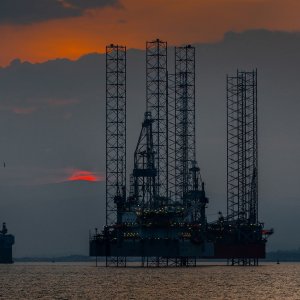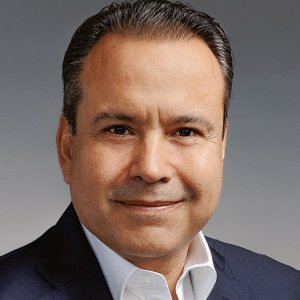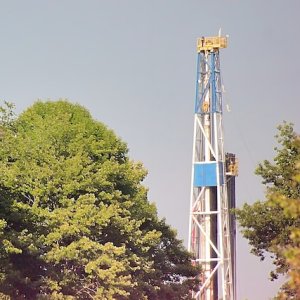No Route Forward for Projects Without Right of Way

STORY INLINE POST
Q: How would you describe the landscape for the energy sector in Mexico and for Energía CB Consultores?
A: Unfortunately, the Mexican energy industry has seen a lot of projects canceled. For instance, our company was involved in several projects but the developers are postponing it for now. There appears to be less communication in granting or changing of permits in CRE. There is quite a bit of uncertainty, which harms companies that have already invested a great deal.
For our part, our company was able to complete its supervision of various gas pipeline projects powered by TransCanada. In these projects, we supervised right of way issues and helped supervise major permits. The company also completed some big projects it worked on for the past seven years.
Overall, even though work continues, the outlook in general is gloomy and arbitration is the norm. We would prefer to work on big, new projects but in reality, these are decreasing in number.
Q: How is the company’s off-taker portfolio evolving?
A: Off-takers remain interested in entering contracts with private players, even though some have submitted some force majeure declarations due to COVID-19. Regardless of the pandemic, things are happening, but we are once again faced with CRE and its registering of self-sufficiency permits. The company has continued to work on requests for proposal (RFPs) from qualified suppliers. We completed a rather large contract last year for a new power plant, for instance. This year, we are working on two more RFPs for qualified suppliers. This will remain an interesting portfolio for us, although it could run into issues on the part of CRE once again. Nonetheless, off-taker interest is quite high.
Q: What are the main issues project developers are facing regarding social license and rights of way?
A: In the last few years, we have seen issues flourish due to the indigenous consultation and social impact assessment. The latter is an area overseen by SENER but the assessments were not being processed smoothly. SENER also had limited capacity to do the indigenous consultations. As a result, many projects that could have started before the end of the former administration were halted on that front. In some areas, land owners and issues regarding security are stalling projects further. If you establish rights of way, you might encounter illicit activity. With criminals, it is better not to negotiate. Our approach is to figure out where there are no conflicting projects or where there is an abundance of demand. Some project developers assume that if one right of way has been established, obtaining another will be easy, but this is not the case.
Another misconception is that land that is located next to government roads and highways will yield simple rights of way. For a couple of years now, the Ministry of Communications has prohibited the approval of rights of way for electricity where telecommunications have the first priority. Therefore, the rights of way for energy concerns can be removed at any given moment. This is, of course, not a stable foundation on which to build transmission lines.
Q: Where does the company identify opportunities to establish transmission lines?
A: Solar energy has fewer problems because the sun is everywhere in Mexico. As a result, you can build projects in many different places. Wind energy is more complicated because it is confined to a few areas. It is necessary to reinforce Mexico’s national network. The grid line that goes to Oaxaca, for instance, is completely indispensable. Oaxaca’s government wants to develop this. This would be beneficial for all energy projects, including Oaxaca’s wind potential. Oaxaca has other benefits, such as people who know the business and have formed associations. Local governments there are also very cooperative. They tend to help both project developers and communities come together. All of these factors make this an easy state to do business in.
Solar energy has the ability to establish itself as an industry where there are no other projects. For instance, there are often three projects that reach one substation. Having rights of way, however, is absolutely crucial to get a project started. One example is an interconnection in Nuevo Leon that our company was involved with. Technically, reaching the substation was quite simple, so developers assumed it would be a quick situation. When we entered and did a pre-census, we noticed that the terrain was divided in strips. Every four meters, a different owner presented themselves because the terrain consisted of large strips. Therefore, this interconnection had to be changed because there was no plan B. Whether you went left or right, negotiations were necessary. A pre-census is crucial to making sense of an area.
Q: How does the company assess the rift between the public and private energy sectors?
A: It is quite a complex situation. If the government does not like the current laws, it should change them. But there is nothing worse than legal uncertainties. Attempting to change the laws and the rights that have been acquired is very complicated. If the executive power starts handling this situation in a way that is against the present law, it will be considered a frontal blow against acquired rights and regulatory certainty. If the government wishes to change the schemes, it should do so in a legal and constitutional manner. This also means it needs to respect past investment rights. New players will know what the new rules of the game are and whether or not they can work within them. With the current measures the government is taking, regulation is so uncertain that companies do not know what will happen to them, including their already built projects. This is also generating a significant increase in basic supply tariffs and impacting the interest of off-takers to create safer options.
Q: How could the government solve this issue, considering both CFE and the private sector?
A: If the law is not changed, it remains illegal for CFE to simply seek foreign investments and start its own projects. Financing new projects this way will be difficult for CFE because its actions contravene the legal framework. How, then, will it ensure that loans are paid back? It seems like CFE was not aware of exactly how much financing/revenue it would need to generate a single MW. CFE has done a marvelous job in the past 60 years but the government’s capacity to invest has decreased. Private players provided a new avenue, taking on the development of new projects instead of CFE. Legally, CFE could only build projects using the government’s budget. After the reform, CFE had to depend on its own revenue and investments.
In the end, these decisions will drive up electricity prices, which Mexico has worked over 20 years to hold down without the use of subsidies. Now, subsidies are increasing, CFE is investing in the wrong places and opportunities to attract investment have been lost, along with more competitive energy prices. Furthermore, government contracts are handed to players that have insufficient industry experience. It reeks of corruption, and there are no public tenders involved either. The solution is to change the law structurally. This will reestablish legal certainty, and there will surely be private companies willing to develop the sector.
Energía CB Consultores is a Mexican consulting firm specialized in developing energy projects, natural gas pipelines and project finance. The company specializes in project management, as well as legal, financial and commercial advisory services.








 By Cas Biekmann | Journalist and Industry Analyst -
Thu, 07/09/2020 - 12:41
By Cas Biekmann | Journalist and Industry Analyst -
Thu, 07/09/2020 - 12:41















